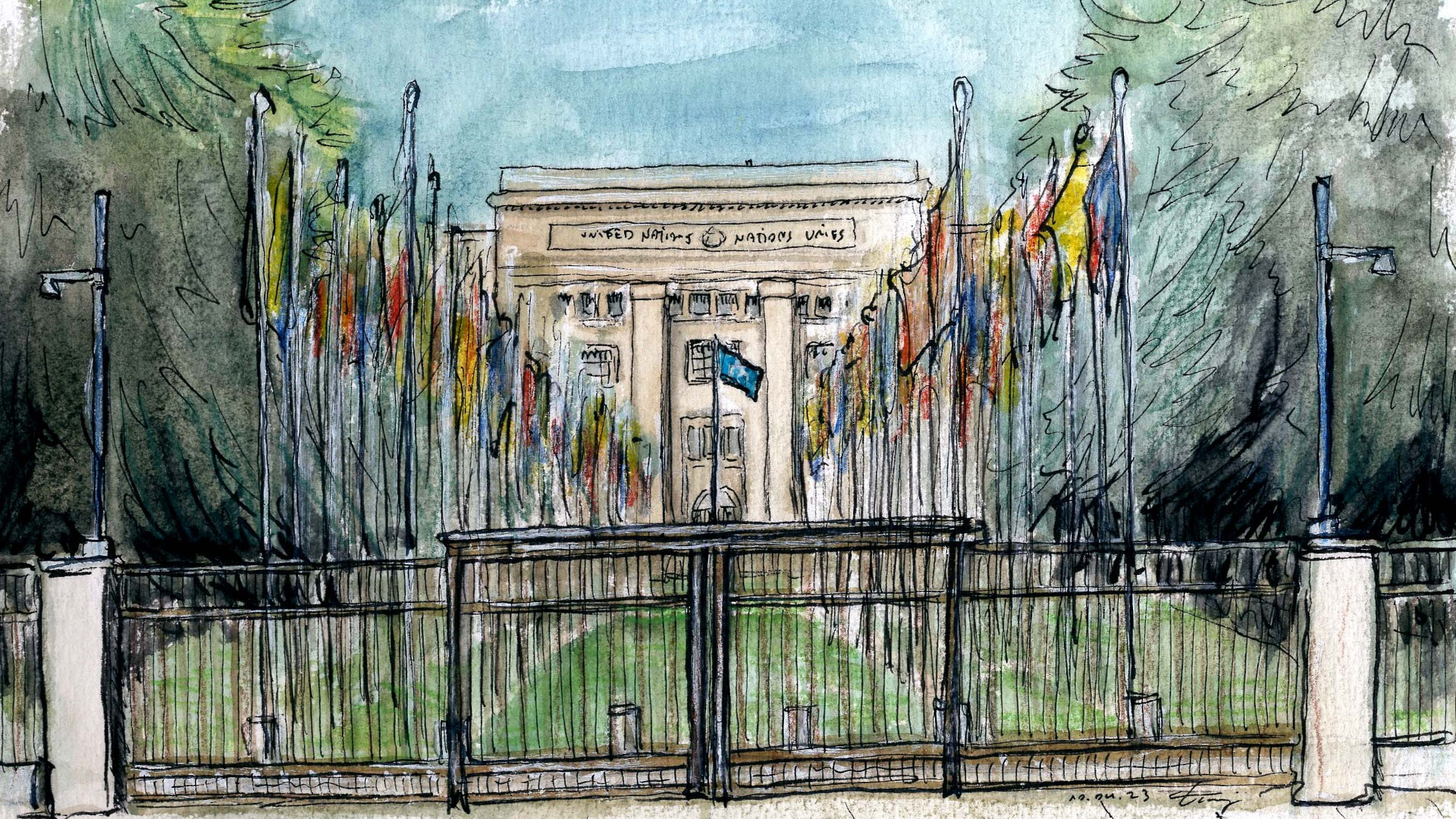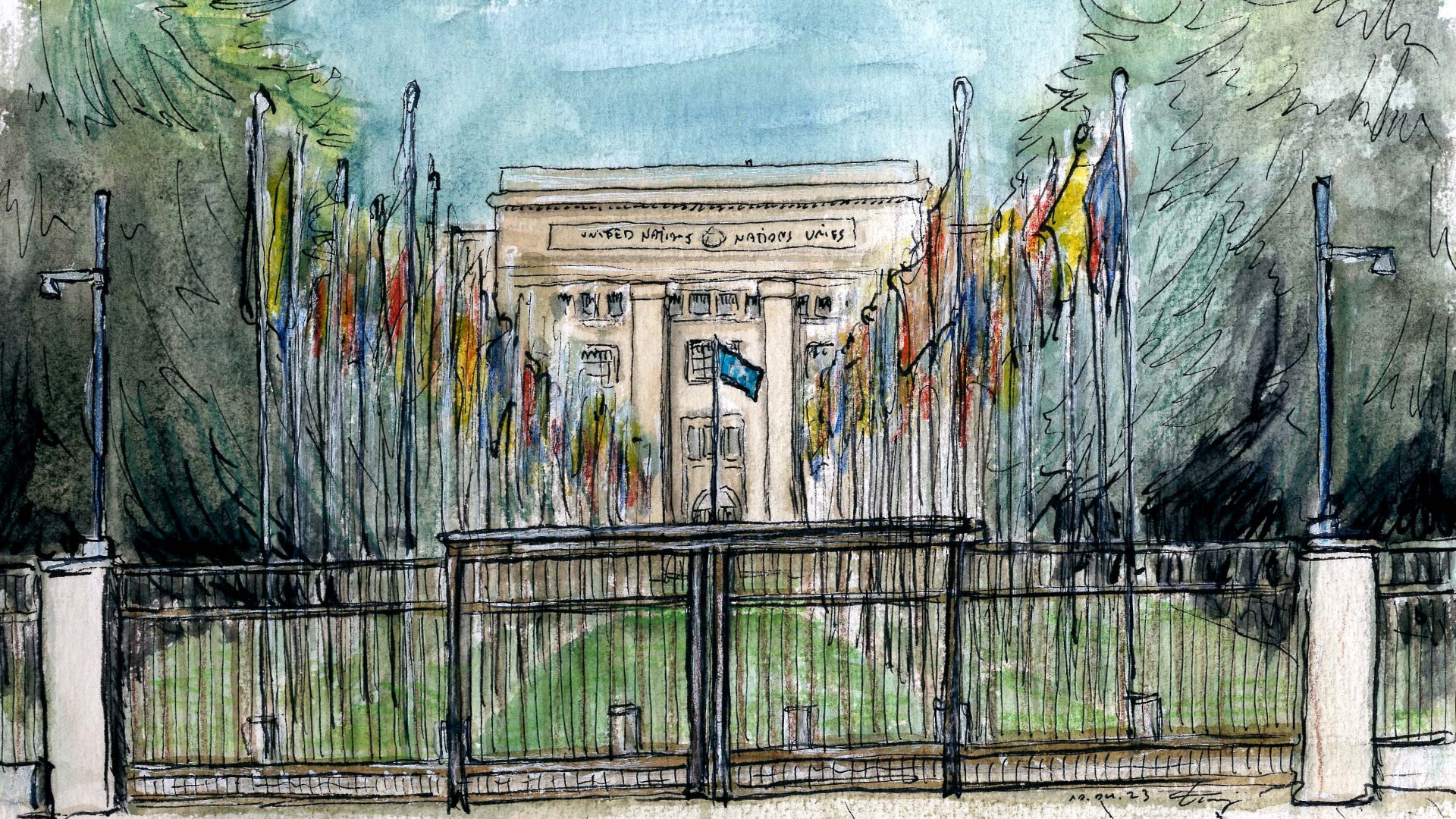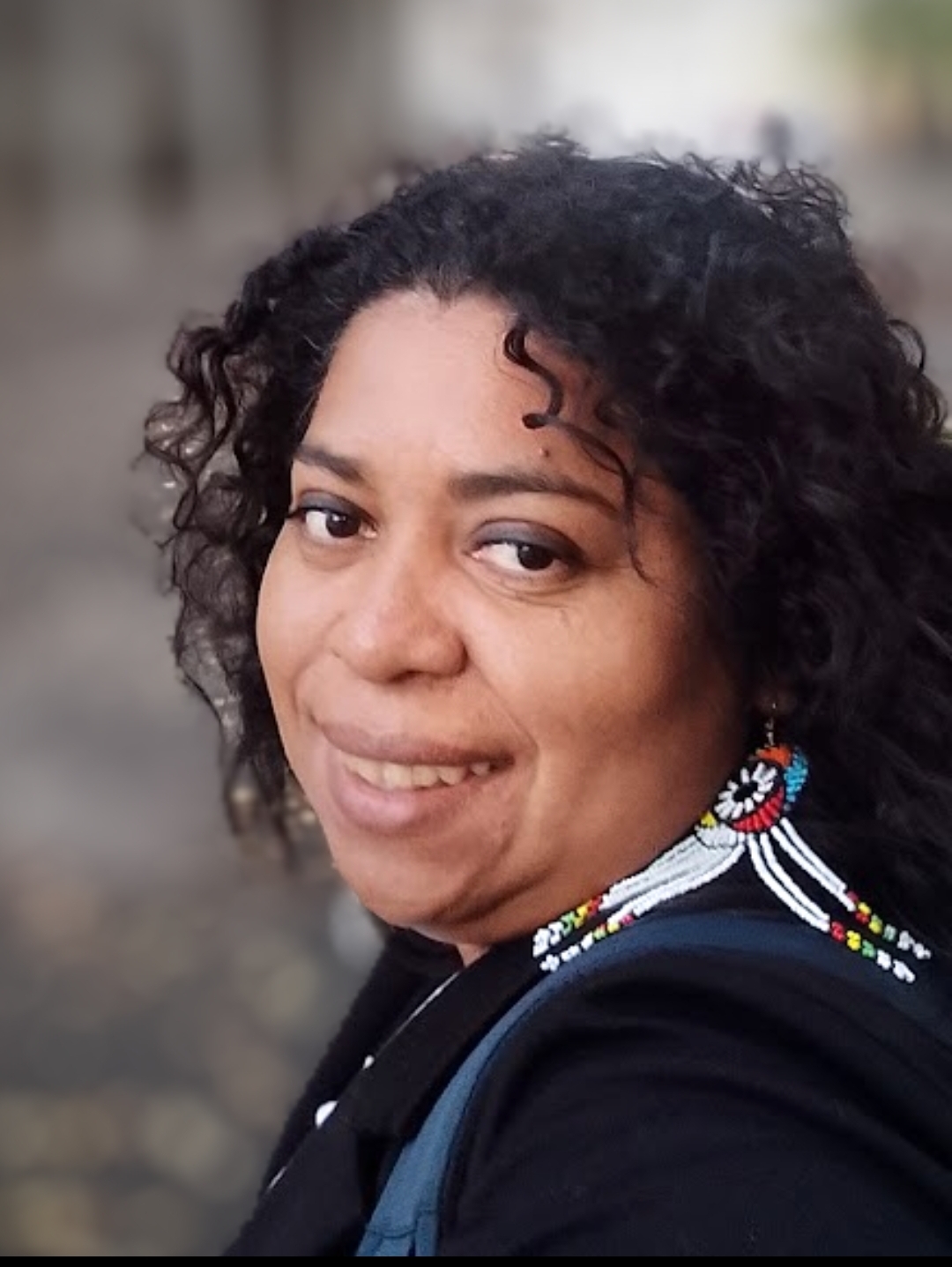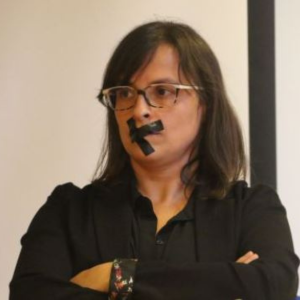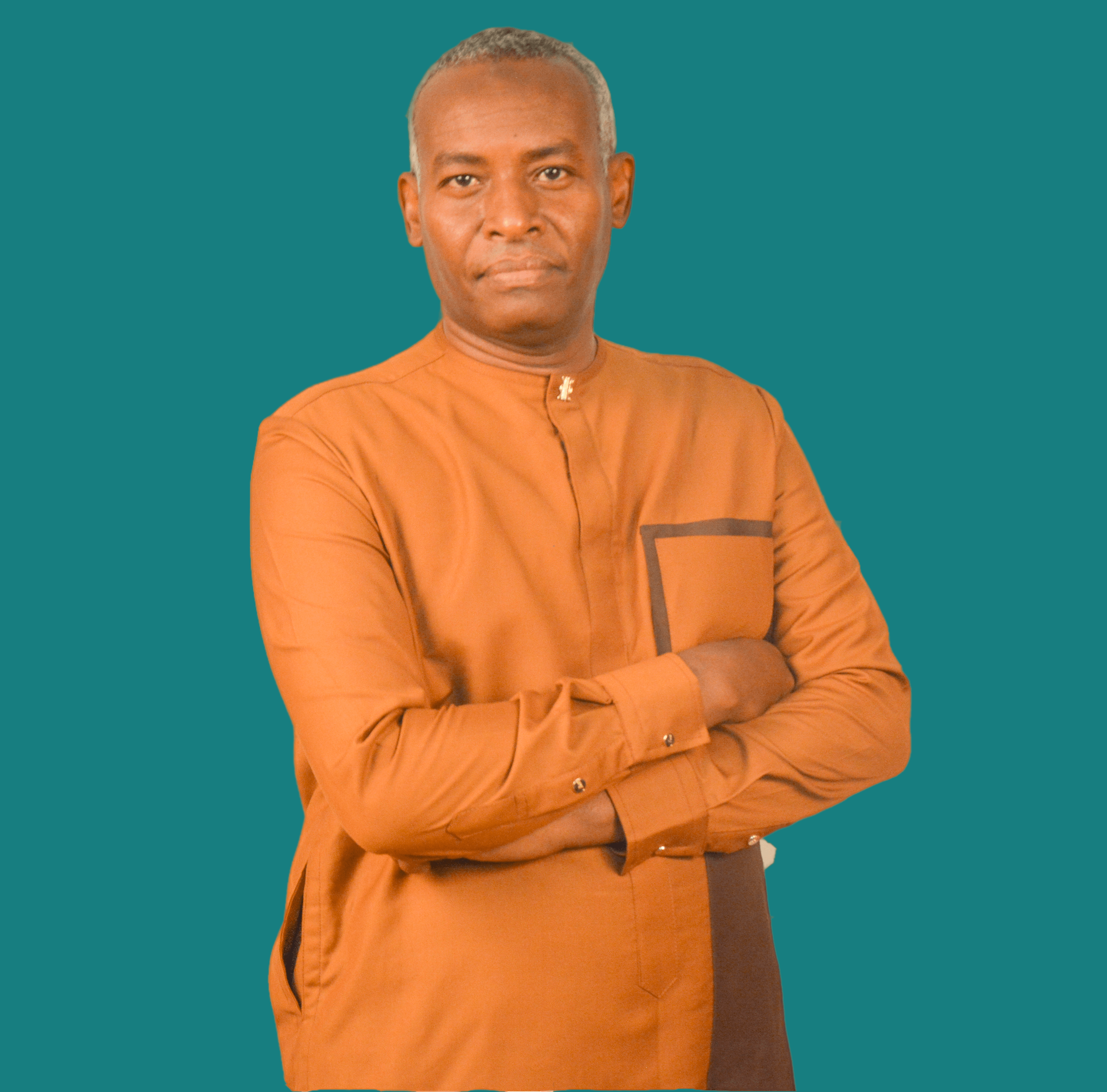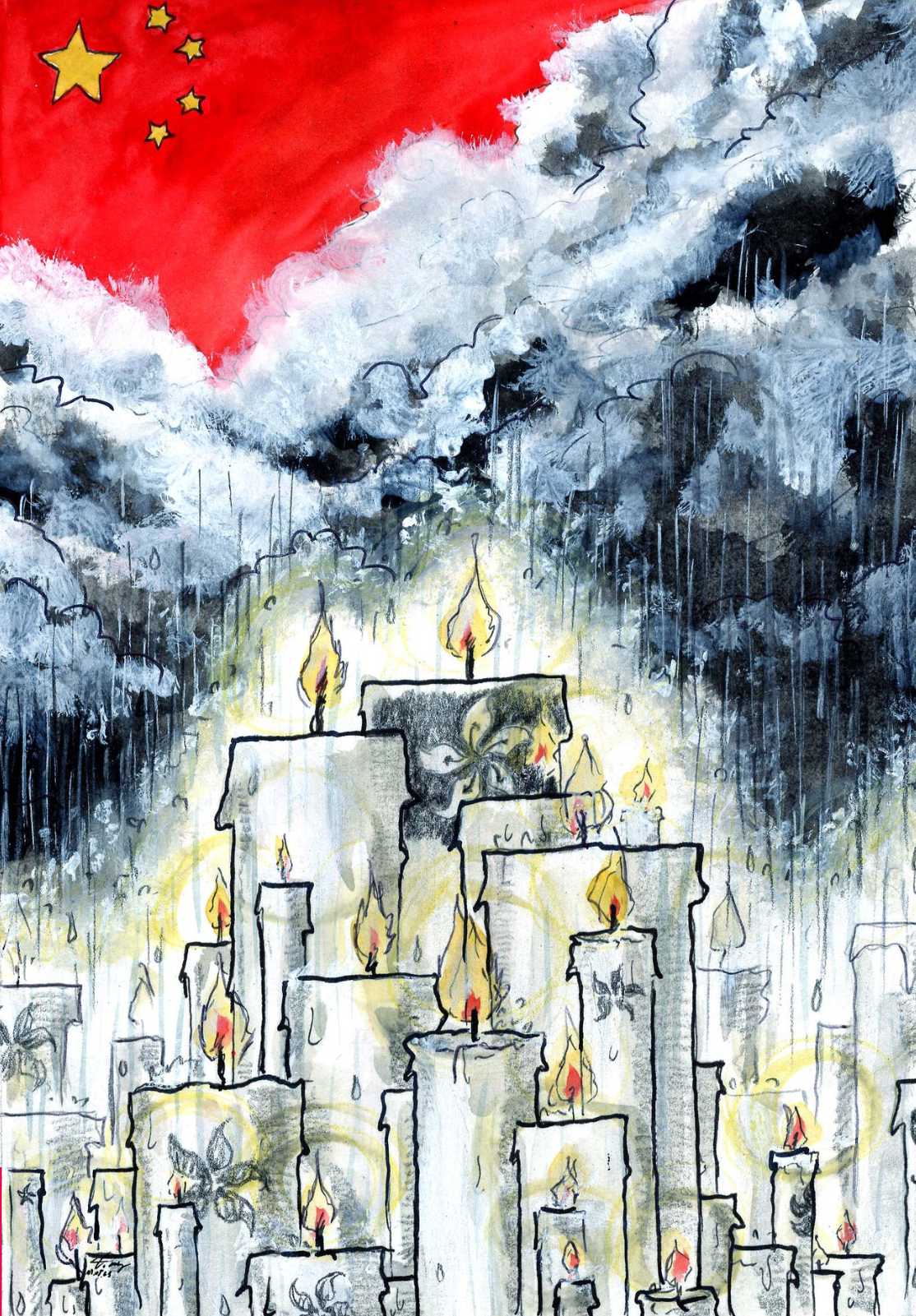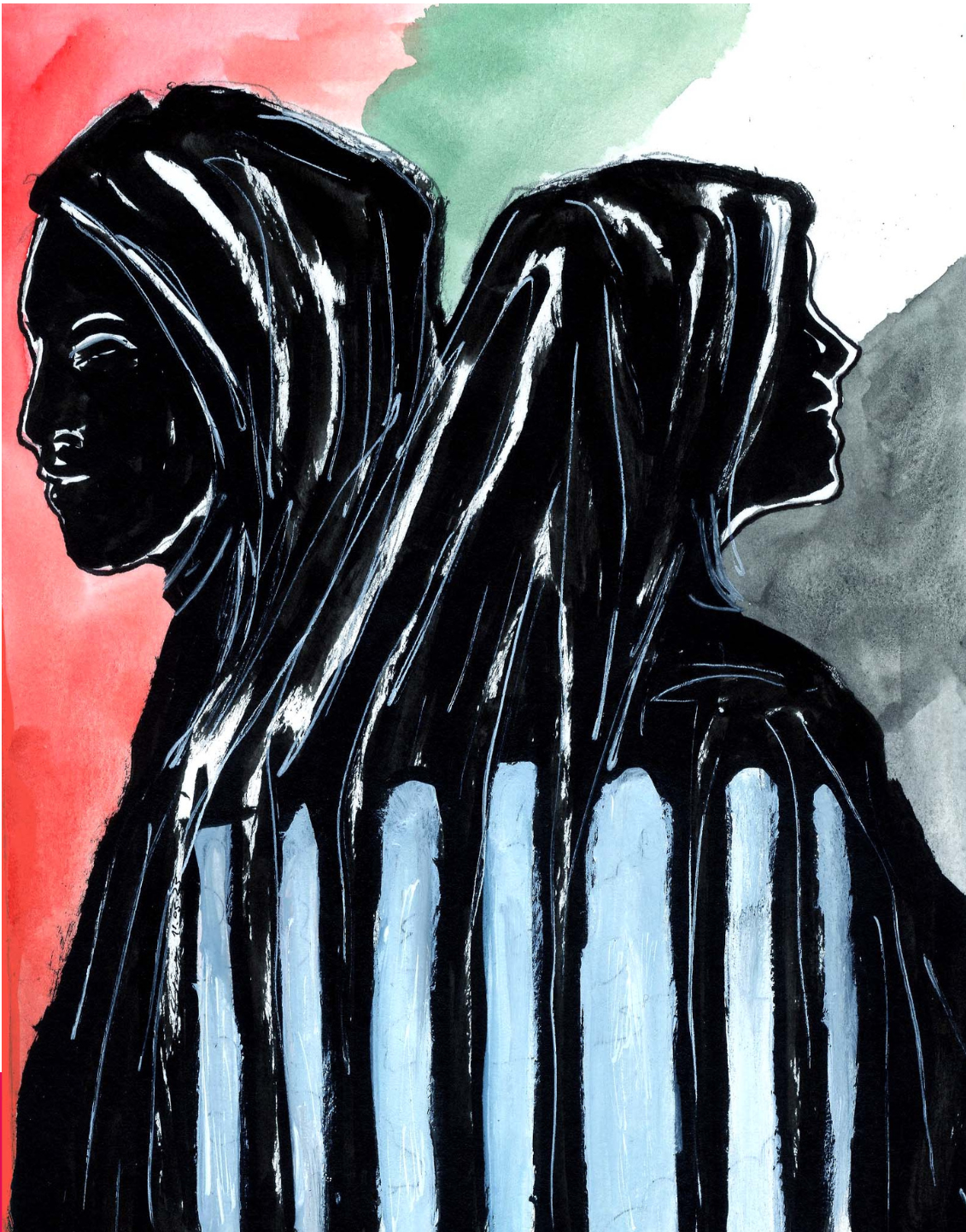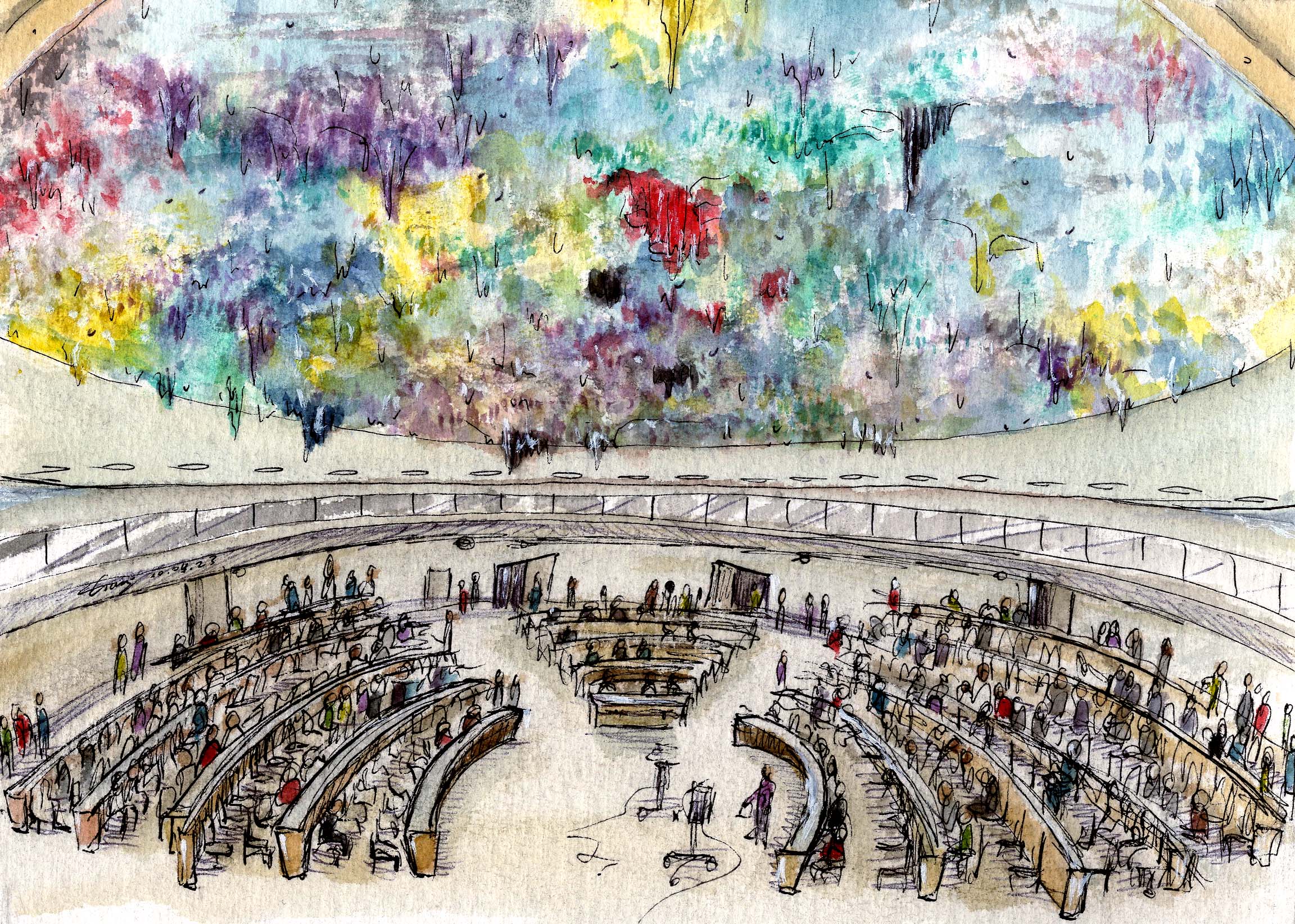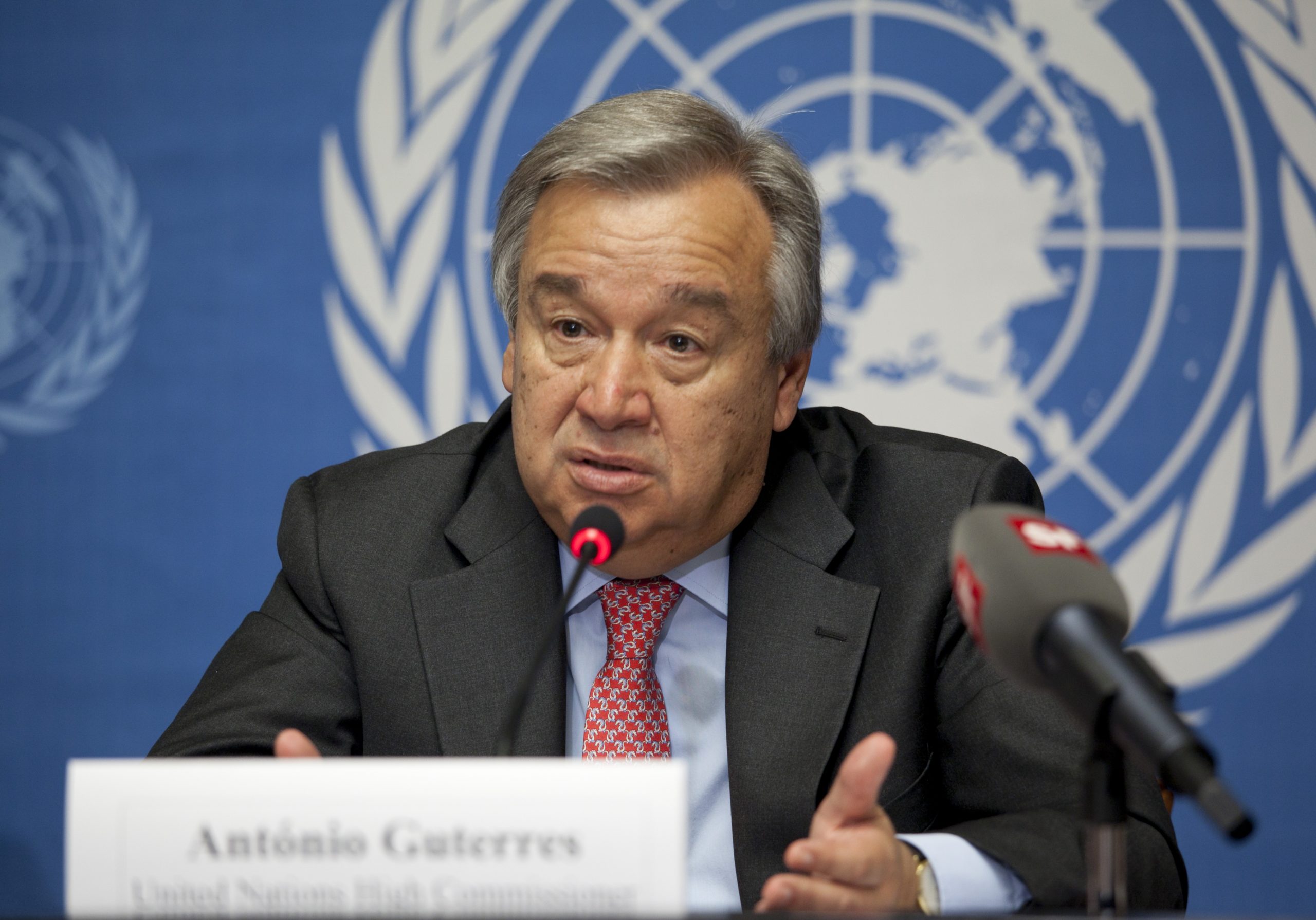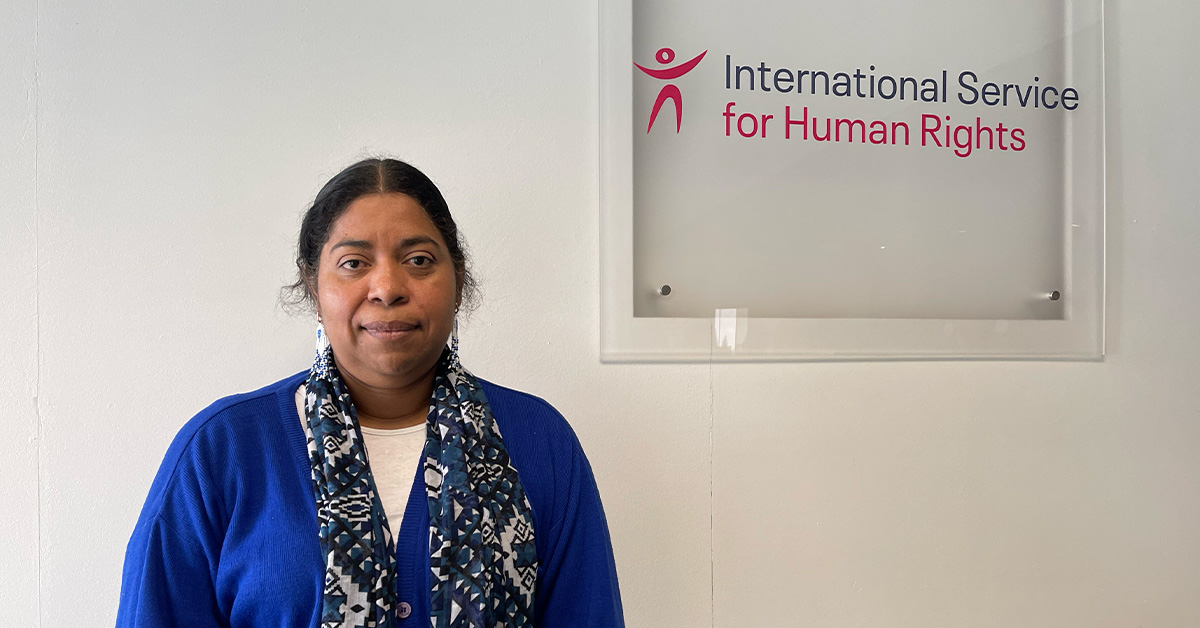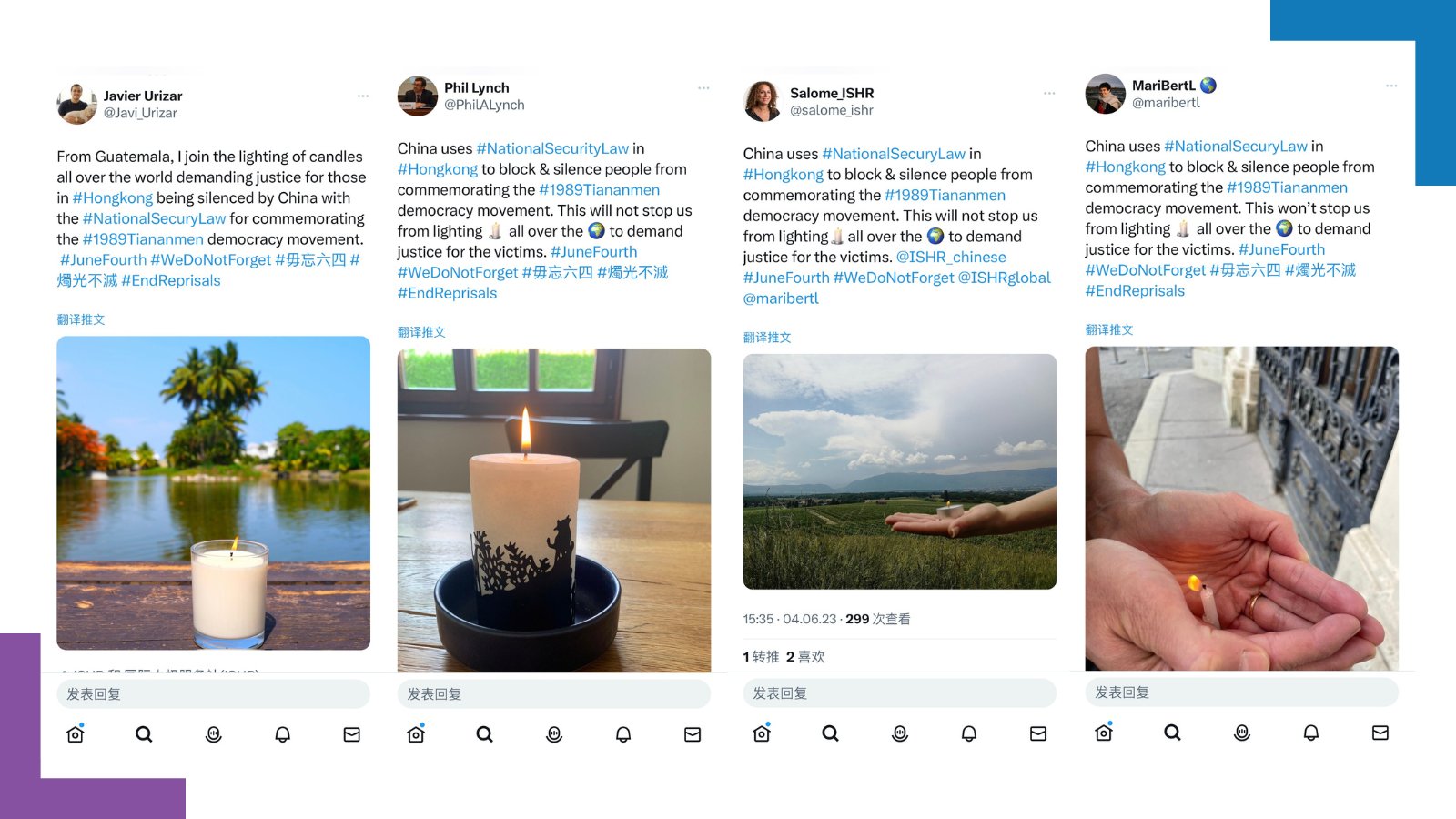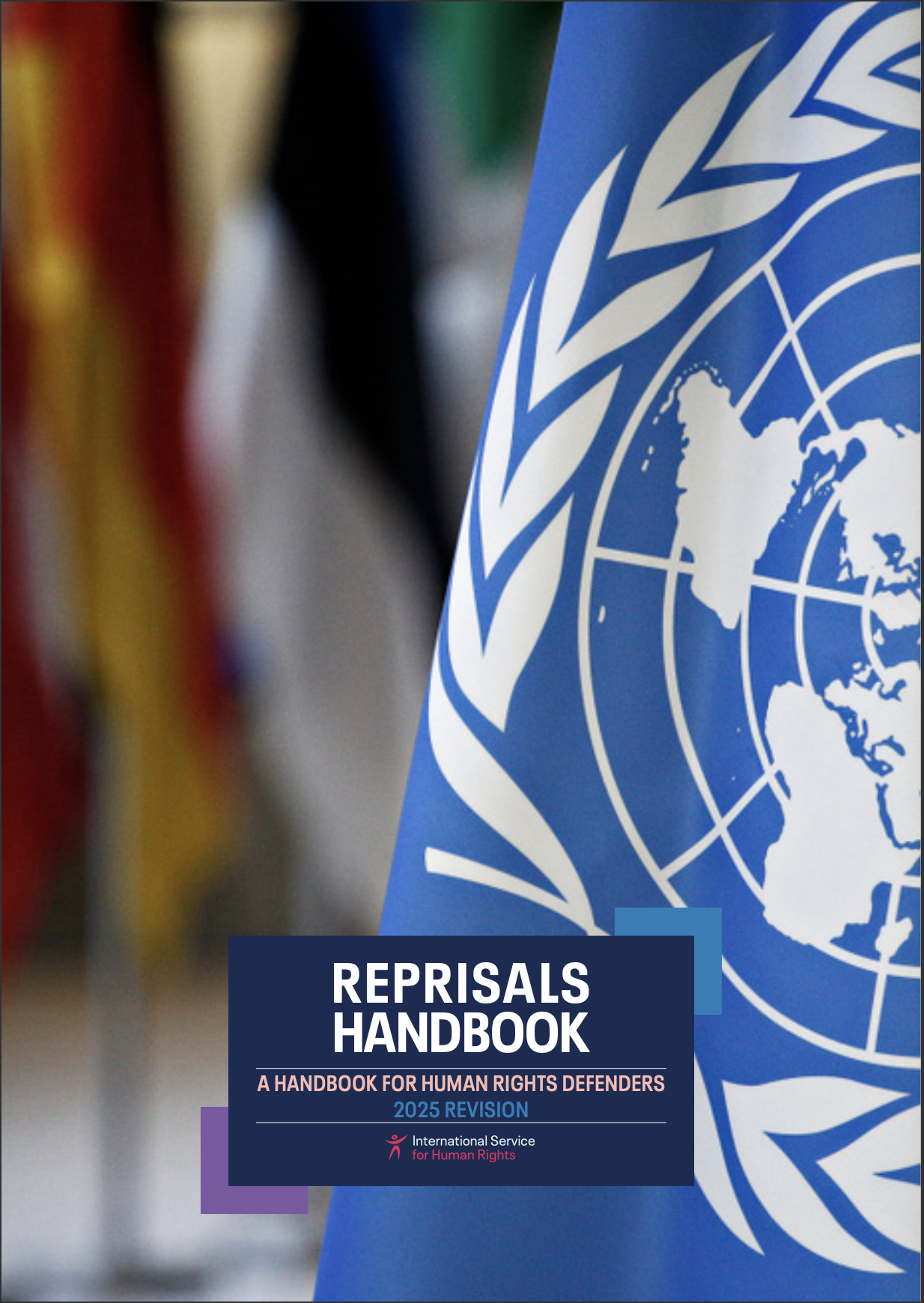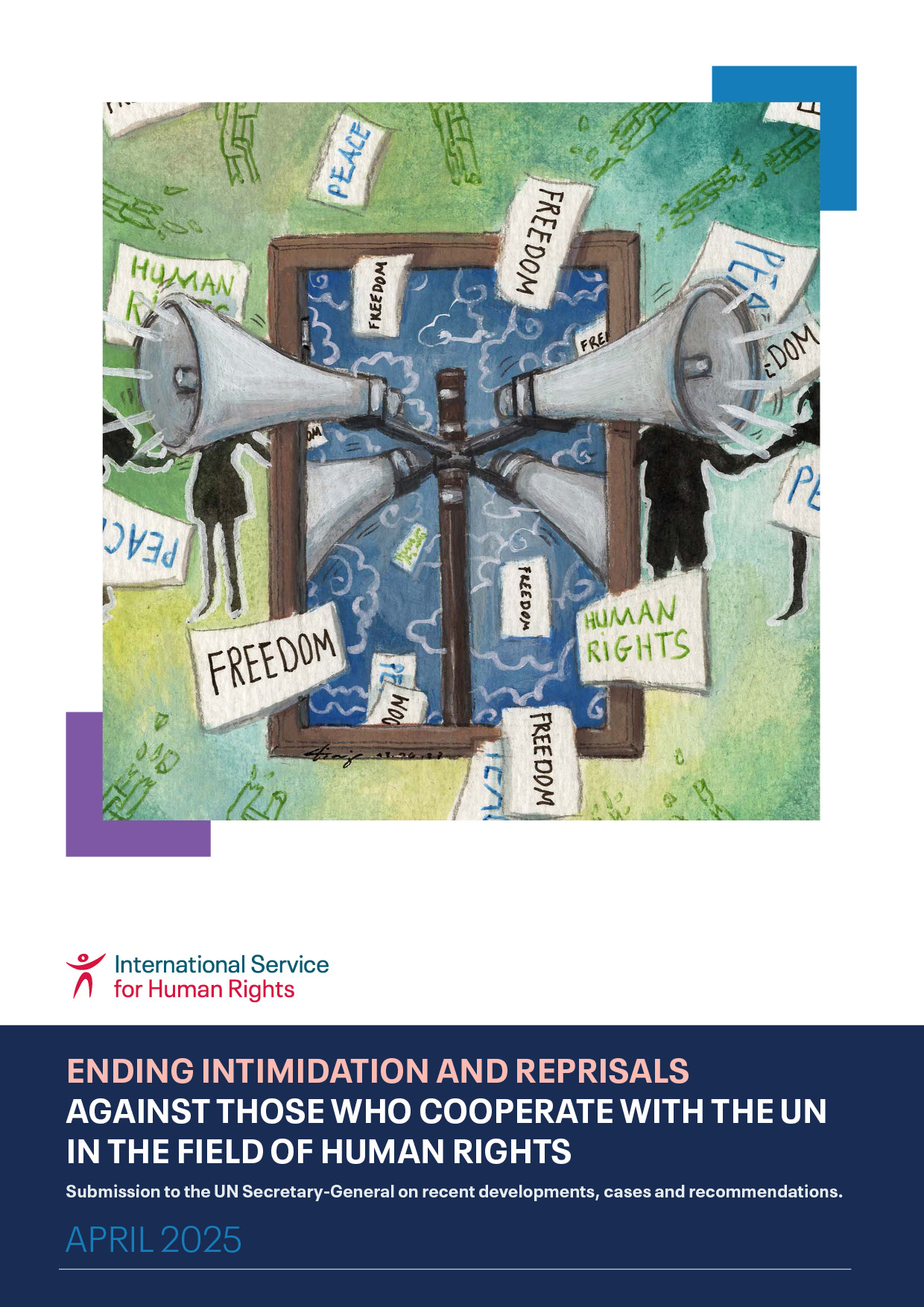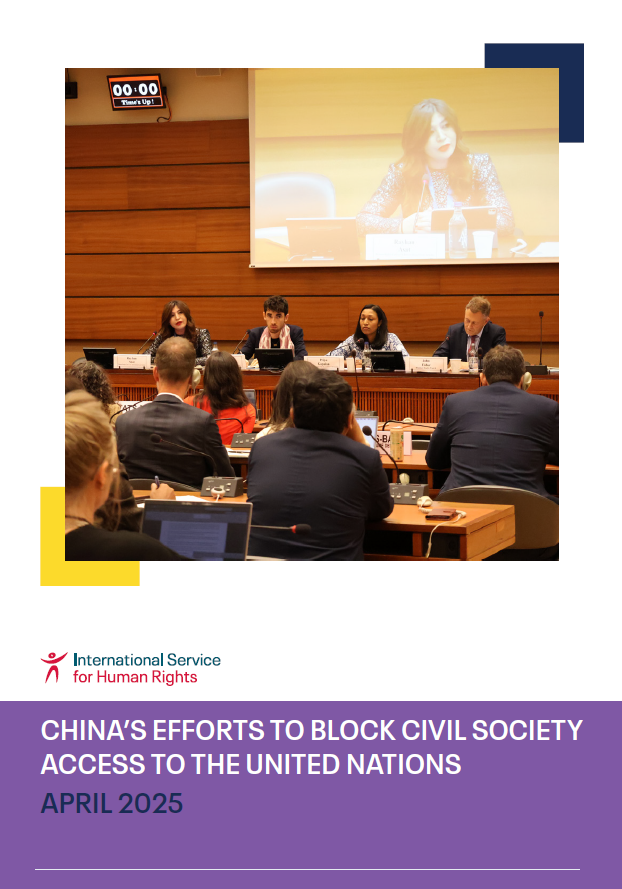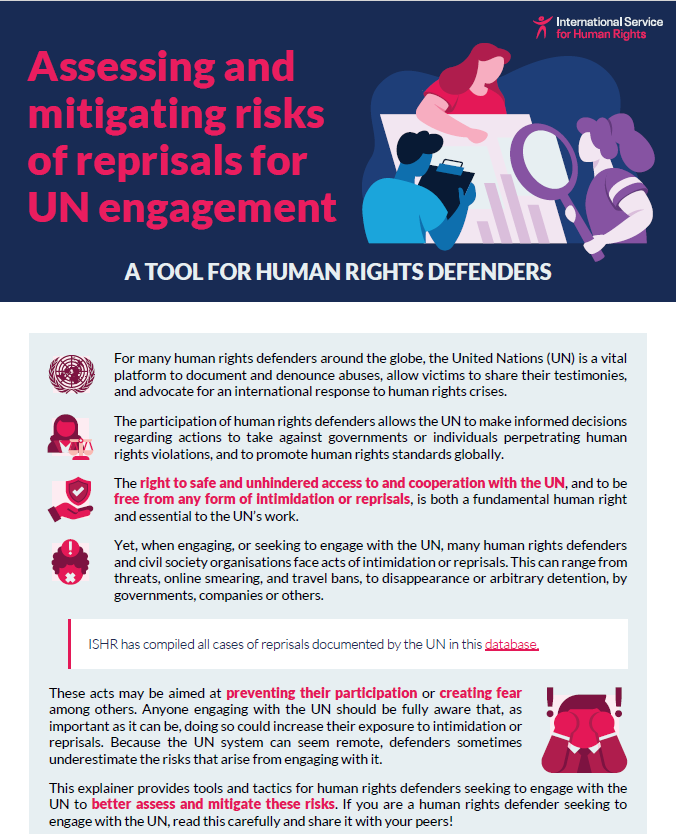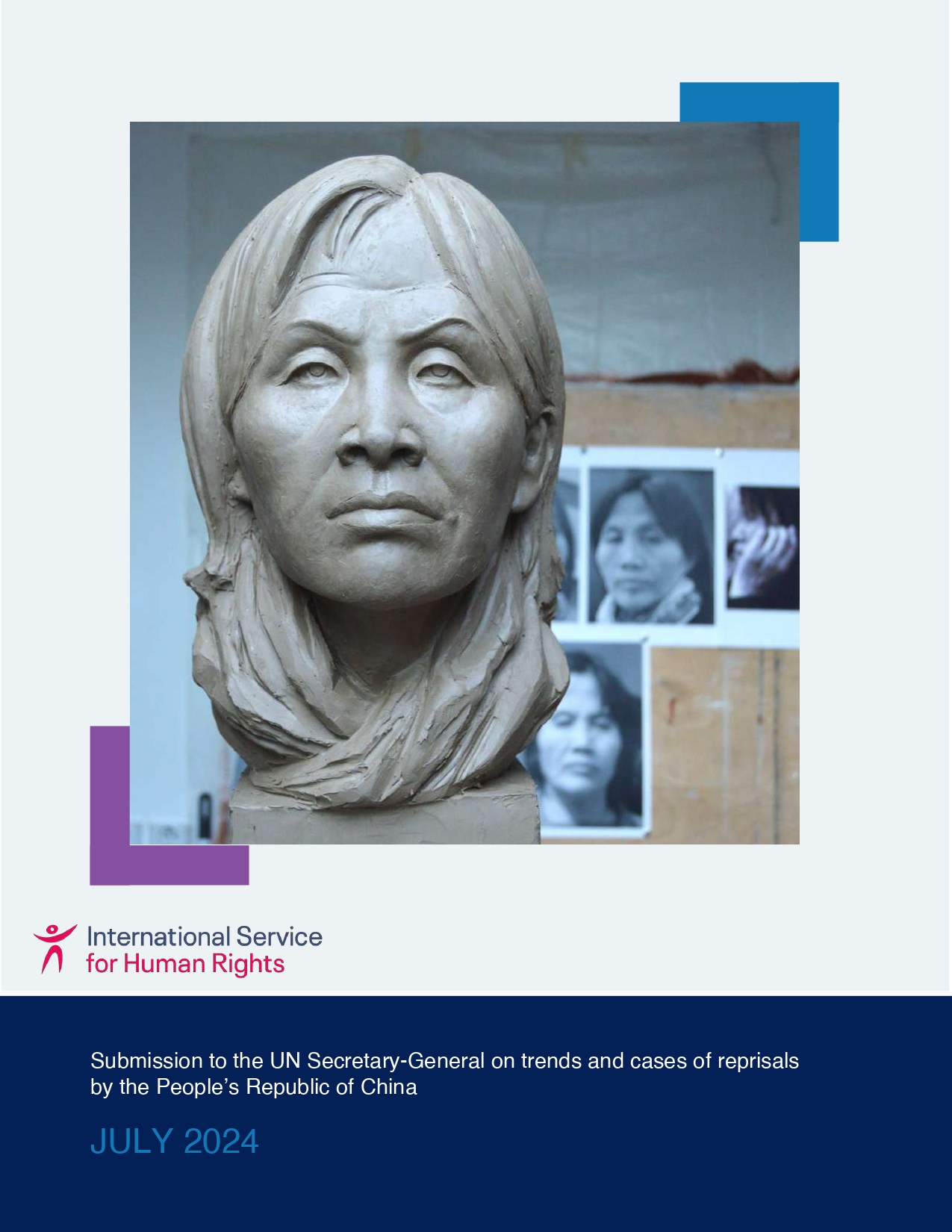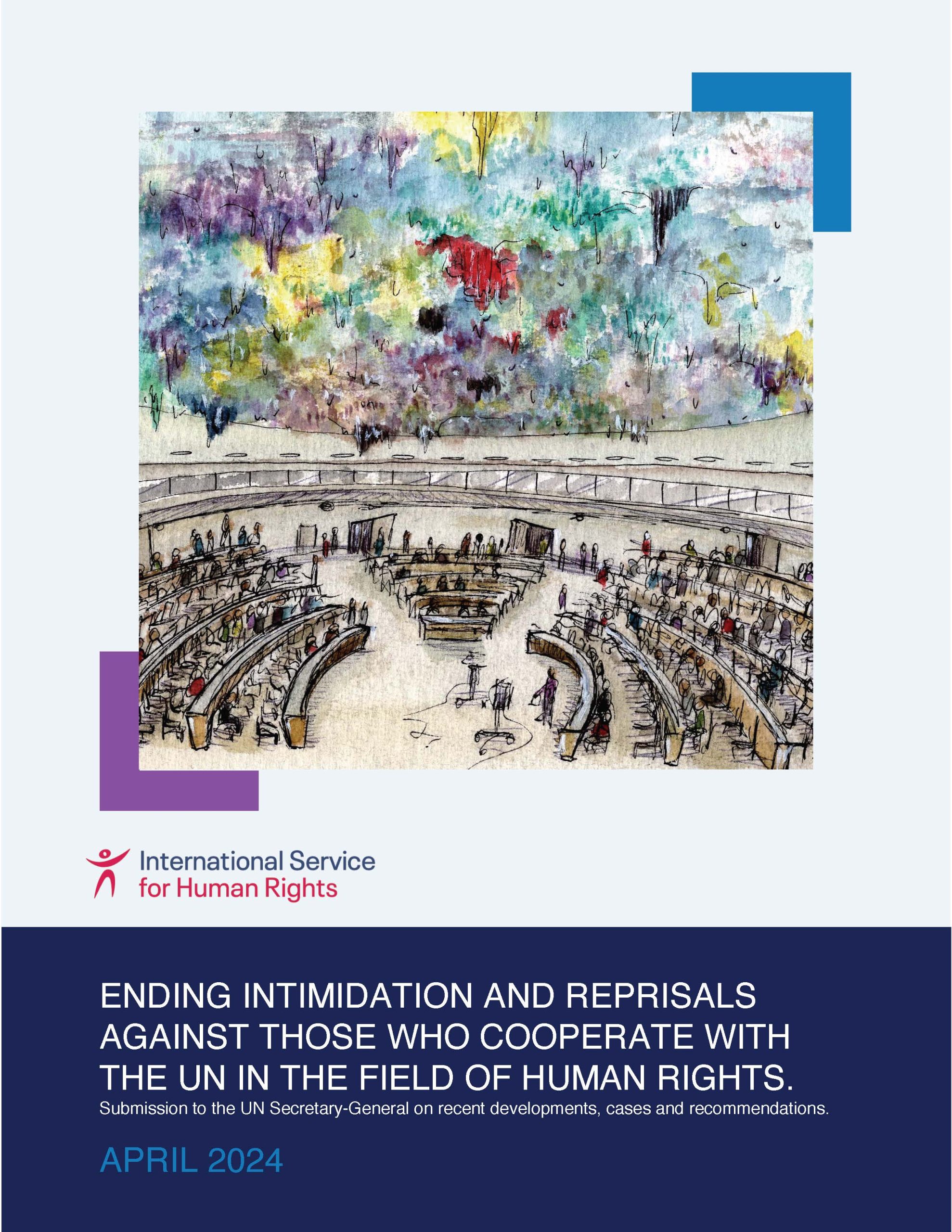Human rights defenders promote dignity, fairness, peace and justice in their homes, workplaces, communities and countries. They challenge governments that fail to respect and protect their people, corporations that degrade and destroy the environment, and institutions that perpetuate privilege and patriarchy. They are important voices from our communities.
The participation of human rights defenders in the work of international and regional mechanisms makes for better outcomes. Defenders bring crucial information and perspectives regarding human rights situations on the ground; and international and regional mechanisms depend on that knowledge and input to make informed decisions. Guaranteeing everyone a safe and unhindered access to international human rights mechanisms is therefore essential for the UN effectiveness and relevance.
Yet, some States try to escape international scrutiny by systematically preventing defenders from engaging and cooperating with UN bodies and mechanisms, and by punishing and silencing those who do engage. They do so through repressive tactics that create fear and range from administrative hurdles and travel restrictions to intimidation, imprisonment and killings.
This is not right.
What do we want?
Everyone has the right to access and safely communicate with the UN.
We want human rights defenders to have a seat at the UN table and be able to effectively and safely engage with UN human rights mechanisms and bodies.
We want States and non-State actors to refrain from intimidating or carrying out reprisals against defenders when they engage or seek to engage with the UN. States must take a clear and public position at the UN against intimidation and reprisals and hold their peers to account.
We call on States to publicly condemn reprisals and intimidation against those who engage with the UN, and raise specific cases of victims. When intimidation and reprisals do occur, we want the UN to effectively address these cases, support the victims and push for accountability and redress.
How do we achieve this?
We mobilise diplomatic missions, encouraging them to speak out and raise individual cases of reprisals against defenders at the UN and in other spaces and hold their peers to account.
We convince the UN Secretary General and his team to acknowledge and document ALL cases of reprisal and intimidation by including them in his annual report on reprisals and intimidation against defenders engaging or seeking to engage with the UN and its human rights mechanisms.
We encourage governments, activists, and concerned individuals to stand in solidarity with human rights defenders and organisations who are subject to reprisals and intimidations.
We push the UN system to achieve a more sustained attention on the issue of reprisals and establish clearer protocols on how to prevent, respond and follow up on cases of reprisals. To do so we will influence the content and wording of the resolution discussed by the Human Rights Council in September.
What can you do?
To achieve our goals, we have gradually raised individual cases or situations that illustrate how human rights defenders are prevented from or punished for engaging with the UN. You can find out more about the five cases below. Take action for them now and help #EndReprisals!
Here are two quick, impactful actions you can take:
Write to State representatives at the UN in New York
and urge them to take up the five cases from Andorra, Djibouti, Nicaragua, Hong Kong and the United Arab Emirates*
*An email will be sent to diplomatic missions to the United Nations in New York who co-sponsored resolutions on reprisals: Albania; Argentina; Armenia; Australia; Austria; Bahamas; Belgium; Bosnia and Herzegovina; Botswana; Bulgaria; Canada; Chile; Colombia; Costa Rica; Croatia; Cyprus; Czechia; Denmark; Dominican Republic; Ecuador; El Salvador; Estonia; Fiji; Finland; France; Georgia; Germany; Ghana; Greece; Guatemala; Haiti; Honduras; Hungary; Iceland; Ireland; Italy; Japan; Latvia; Liechtenstein; Lithuania; Luxembourg; Maldives; Mali; Malta; Marshall Islands; Mexico; Moldova; Monaco; Mongolia; Montenegro; Netherlands, the; New Zealand; North Macedonia; Norway; Panama; Paraguay; Peru; Poland; Portugal; Republic of Korea; Romania; Slovakia; Slovenia; South Africa; Spain; State of Palestine; Sweden; Switzerland; Timor-Leste; Turkey; Ukraine; United Kingdom of Great Britain and Northern Ireland; United States of America; Uruguay; Vanuatu.
Click on the tweet below
A joint statement on reprisals will be delivered during the General Assembly’s Third Committee in New York. We want as many States as possible to co-sponsor the statement.
By joining the statement, States will affirm their commitment to the fundamental rights of freedom of expression and association. They will also show solidarity with human rights defenders, civil society actors and victims of violations worldwide, demonstrate their commitment to dialogue, cooperation and the institutional integrity of the United Nations, and they will contribute to ensuring that UN bodies and processes are informed by, and respond effectively to, the needs of communities on the ground!
Don’t forget to mention specific States if you want to have more impact: you can pick your target(s) from this list!
